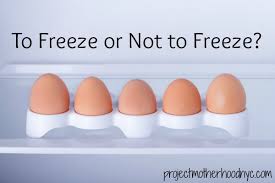That is a question many millennial women are asking themselves. Should they freeze time and their biological clock by undergoing oocyte cryopreservation, the medical term for egg freezing, or will Mr. Right come along before their fertility is reduced?
At HRC Fertility, we are seeing an increased interest in “social” egg freezing as the technique becomes more popular and effective. Some employers, such as Google and Facebook, have even begun offering this benefit, realizing their female employees want more reproductive choices.
Though there is no “one size” fits all answer, the women who come to our clinic to inquire about their options generally look at these factors to make a decision: current age; finances; professional and educational goals; relationship status; and, desire to become a mom and have children.
What to women really need to know about egg freezing?
Before they embark on their egg freezing journey, the typical twenty or thirtysomething woman should know the answers to these questions about preserving their fertility.
What is the best age to freeze my eggs?
Ideally, women should freeze their eggs in their late 20s or early 30s when their fertility potential is highest. The older a woman is, the more eggs she will need to have retrieved to maximize her chances of a pregnancy when she uses them. This might mean several egg retrieval cycles.
How are eggs frozen?
The largest cell in the human body, the egg, is mainly comprised of water that can form ice crystals when frozen, which damages the cell. At our laboratory, we freeze eggs using a flash freeze process known as vitrification. First, however, we add an “anti-freeze” to prevent crystallization. Vitrification was a major advancement over the slow freeze method previously used.
What is the egg retrieval process like?
Similar to IVF, egg freezing requires a series of hormone injections and monitoring of your hormone levels and ovaries. When the eggs have matured, they are retrieved using transvaginal guided ultrasound while the patient is under anesthesia.
What happens when I want to use my eggs?
We will thaw your eggs and combine them with the sperm of your choosing. Current estimates indicate that up to 75 percent of eggs survive thawing with 75 percent of those fertilizing and growing into embryos.
About 2000 babies have been born from egg freezing, and there have been no reports of higher birth defects or abnormalities with these babies. Experts currently believe eggs can remain frozen indefinitely, although there have been no studies of eggs frozen more than 10 years.
What if I don’t use my eggs?
Many women have found that frozen eggs gave them peace of mind to pursue their professional goals and/or move with their lives without worrying about losing their chance to have a baby. Many find partners and get pregnant the “old fashioned” way but are glad they took out this fertility insurance plan.
Who else should freeze their eggs?
For women facing a cancer diagnosis, freezing their eggs can be a game changer for life after their cancer is cured or in remission. We highly recommend they undergo an egg retrieval before starting life-saving, but fertility-damaging treatment.
Two other types of patients might also want to consider egg freezing: those who have moral or religious objections to excess embryos and women with a family history of premature menopause.
At HRC Fertility, we firmly believe that young women who think they someday want kids should take charge of their fertility. Knowledge is power, and we encourage them to educate themselves about fertility in general and egg freezing in particular.

